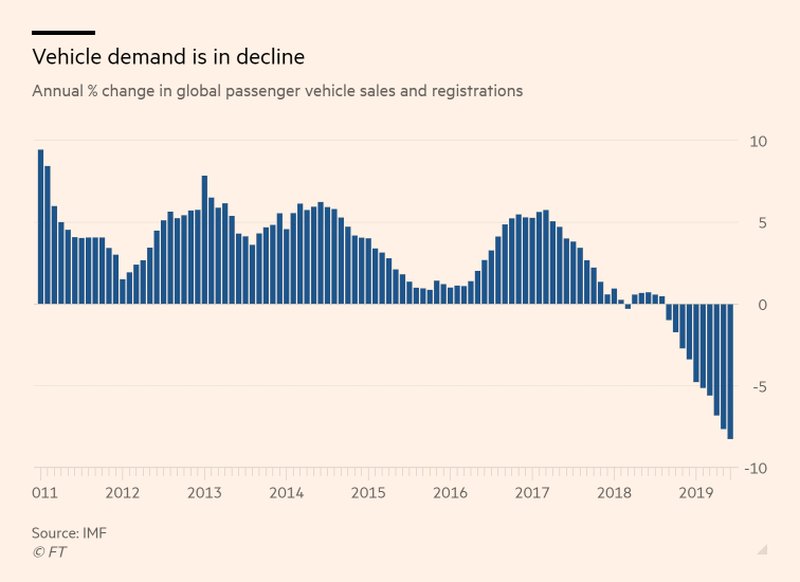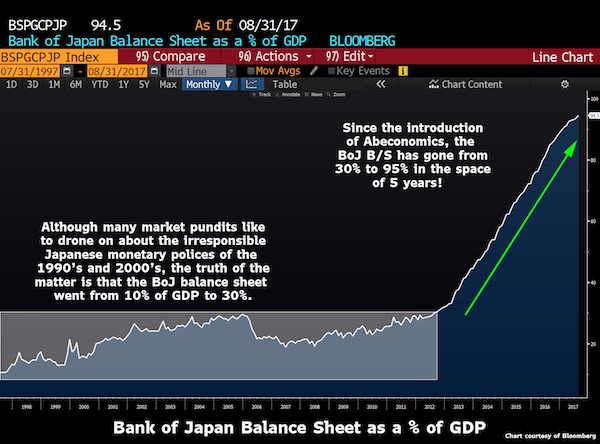
Unknown Butler’s dredge-boat, sunk by Confederate shell, James River, VA 1864

The only coverage of Julian’s court appearance yesterday that I could find is from RT. ¿Perqué?
• Assange Testifies In Trial Of Company That Spied On Him Inside Embassy (RT)
WikiLeaks founder Julian Assange briefly stepped out of maximum security prison in the UK to testify via video-link in a Spanish case against a company that spied on him inside the Ecuadorian embassy, allegedly on the US’ behalf. Assange, who is being held at Belmarsh prison in southern London pending his hearing on extradition to the US, was driven over to the Westminster Magistrates’ Court on Friday, where a video-link was set up for him to speak with a judge in Madrid. The proceedings were closed to the press on the grounds of “national security.” The High Court in Madrid is hearing Assange’s case against Undercover Global Ltd, a Spanish security company that allegedly bugged him during his stay at the Ecuadorian embassy in London.
Undercover Global was contracted to provide embassy security between 2015 and 2018, and in that capacity secretly recorded Assange’s every move via hidden cameras, microphones and electronic surveillance, the lawsuit says. Assange told the court “he was absolutely unaware that the cameras recorded audio, that hidden microphones had been introduced” into the fire extinguisher mounts inside the embassy, his attorney Aitor Martinez told reporters in Madrid after the testimony. Assange was “an absolutely passive subject of an illegitimate interference that would have been eventually coordinated by the United States,” Martinez added. If the illegal surveillance targeted Assange’s legal team and violated his attorney-client privilege, that has ramifications on the proceedings against him in both the UK and the US, his lawyers have argued.

Rand Paul: “In the advocacy culture of our new media, ex-government officials such as Brennan, Clapper and McCabe can be paid to appear on news programs to analyze (or vindicate) their own unethical behavior.”
• Former Intelligence Chiefs Fit Perfectly Into Media Advocacy Culture (Hanson)
Former FBI Director James Comey and Deputy Director Andrew McCabe, former CIA Director John Brennan and former Director of National Intelligence James Clapper have lots of things in common. One, they ran the nation’s key intelligence and investigatory agencies under former President Barack Obama. They were deeply involved in the “Russian collusion” hoax. And they participated in the surveillance of the Trump campaign and transition. Comey and McCabe both signed applications for Foreign Intelligence Surveillance Court warrants requesting surveillance on Trump campaign aide Carter Page. A report by Justice Department Inspector General Michael Horowitz criticized Comey and McCabe’s FBI for falsehoods and misrepresentations during its investigation of the Donald Trump campaign.
Clapper, Brennan and the FBI helped to disseminate the fallacious Steele dossier to the press and among government agencies. Two, Comey, McCabe, Brennan and Clapper have all lied either under oath or in the public sphere. Horowitz has said that he referred Comey for criminal prosecution for leaking classified memos he wrote about his confidential conversations with the president, but the Justice Department did not pursue charges. Comey signed FISA warrant applications that the inspector general has determined were misleading at best and at worst simply flat-out wrong. In testimony before the House Judiciary and Oversight Committees, there were 245 occasions on which Comey claimed he couldn’t remember details or couldn’t answer questions. Comey did not tell the truth when he said the Steele dossier was not the prime evidence that he submitted to the FISA court.
He also lied about when he was briefed on the dossier. McCabe was given a criminal referral for lying to federal investigators. His story about conspiring to catch Trump on tape in an effort to remove him under the 25th Amendment cannot be reconciled with the version of the account told by his apparent partner in that gambit, former Deputy Attorney General Rod Rosenstein. Brennan has on two occasions lied under oath to Congress, first about collateral deaths caused by drone strikes abroad, then about CIA spying on Senate staffers’ computers. Clapper got caught lying about the surveillance of U.S. citizens and claimed he gave the “least untruthful” answer. Both have given accounts of their knowledge of the Steele dossier that are contradicted by a number of sources. Clapper falsely claimed of the dossier that “more and more of it has been corroborated.”
Three, all four of these former intelligence chiefs detest the president of the United States. Comey has compared Trump to a Mafia don and stated that he is morally unfit to be president. McCabe, who was likewise fired from the FBI, has called Trump’s behavior “disgusting.” Clapper said that Trump may be working with Putin as a Russian “asset.” Brennan called Trump a “disgraced demagogue” as well as venal, corrupt and amoral.

“..when does this faction finally lose its appetite for self-degradation and dishonor?”
• Reindeer Games (Jim Kunstler)
Mr. Trump appears eager and avid to go to trial, where his side could call witnesses to his heart’s delight while denying the opposition any witnesses, just as the Dems did in the house. His managers could call in the Bidens, Joe and Hunter, to explain their 2014 adventures in Ukraine, and the impressive payments tendered to them — for what? The defense could compel the testimony of the rogue CIA agent, Eric Ciaramella, to explain his pretensions of whistleblowing, and also his enabler, Intel IG Michael Atkinson, who left a procedural slime-trail in his handling of the “whistleblower” ruse. They could call in the fact-witness to all that, Rep. Adam Schiff, who would excite the wonder and loathing of the nation in being forced to reveal his part in that charade and to recount the myriad falsehoods he has spawned in three years of RussiaGate chicanery — which, in a truly just world, would prompt his expulsion from the house.
They could haul in Messrs Obama, Brennan, Clapper, Comey, Mueller, Weissman, Rosenstein, McCabe, Ohr, Lynch, Strzok, Ms. Page, Ms. Yates, Mrs. Lynch, Mr. Halper — though I suspect that bunch would be better left to the ministrations of John Durham, just as the Democratic primaries roll out. A trial like that would be a rich spectacle for sure after subjecting the nation to three years of malicious, perfidious sedition. But other gusts of rumor intimate that senators on the Republican side would prefer to not open any cans of Ukrainian worms in a trial, since money laundered through the Ukrainian oligarch mills may have found its way into their pockets as well. Who knows…?
The simplest explanation for this hot mess is that Mrs. Pelosi’s team wanted desperately to just distract the country’s attention from the Horowitz report — which it pretty much failed to do — and now that she’s shot her wad with that gambit, she’s left holding a bag of meritless impeachment bullshit that will disappoint and embarrass the Resistance just as much as the Mueller investigation managed to do. Which leads to the question: when does this faction finally lose its appetite for self-degradation and dishonor?

There you go. Put Schiff in charge.
• It’s Time for J.J. Abrams To Be Impeached From Star Wars (Reason)
For the last four years, we have been living a collective nightmare. Our shared values have been undermined. Our cherished culture has come under attack. At its least harmful, this nightmare has taken the form of empty nostalgia, in which the leaders who have been entrusted with ushering us into the next era have instead looked into the past, distracting us with symbolic gestures that serve no purpose except to cover up a lack of vision. At its worst, a combination of incompetence, erraticness, and sometimes sheer malice has squandered decades of progress. The ensuing conversation has been fruitless and ugly, and the experience has left many of us polarized, angry, and exhausted.
This week, it finally started to look as if that nightmare might end—but only in the weakest and most slapdash manner. This resolution, which is not really a resolution, is not only a disaster: It’s a disappointment, a pointless, abysmal letdown that is virtually certain to fully satisfy almost no one. The result is a rushed and poorly executed product of bad management, empty thinking, and shallow wish-fulfillment that will only further the public’s loss of faith in the entire enterprise. I speak, of course, of the Star Wars franchise, which in late 2015 returned to movie theaters under the managerial oversight of Lucasfilm’s Kathleen Kennedy, with a strong creative influence from Hollywood’s reigning prince of blockbuster mediocrity, J.J. Abrams.

Close to what I recently wrote on capitalism and free markets, but from a professional investor point of view. Problem is, what does John Mauldin mean when he says “socialism”? Everyone means something different. That also makes polls on socialism suspect.
• Americans Are Not ‘Free To Choose’ Anymore (Mauldin)
When you write for a wide audience, no matter what you say, or how carefully you say it, some people will misunderstand. Sometimes it’s amusing. Reading through my feedback (and I do read all of it), I get called both heartless capitalist and bleeding-heart socialist in reaction to the same article. In fact, I’m neither. I am a capitalist, and proudly so. I believe free markets are the best way to bring maximum prosperity and peace for everyone. But I’m not heartless, nor do I think markets are perfect. Even the best medicines can have serious side effects. That is doubly so when you aren’t taking the medicine correctly. I also don’t think the word capitalism means what we think it means, at least those of us of a certain age.
Take a look at the data from an interview Charles Payne did with David Bahnsen on Fox Business a few weeks ago. Asked if they favor capitalism or socialism, 49% of Millennials favored socialism. But if you ask if they favor big business or “free enterprise,” the numbers change significantly. In the future, I intend to substitute “free market” for capitalism where possible. Capitalism, at least the free market version, can’t work without competition. It motivates producers to offer the best products at the lowest prices, and lets consumers choose whatever best fits their needs. Yet instead of encouraging and protecting competition, the US government increasingly suppresses it. Last February I wrote about a then-new book, The Myth of Capitalism, by old friend Jonathan Tepper and Denise Hearn. They aren’t leftists at all. They respect classical capitalism and want it to work better than it is.
Here’s a quick snippet from the book. “Free to Choose” sounds great. Yet Americans are not free to choose. In industry after industry, they can only purchase from local monopolies or oligopolies that can tacitly collude. The US now has many industries with only three or four competitors controlling entire markets. Since the early 1980s, market concentration has increased severely. We’ve already described the airline industry. Here are other examples: • Two corporations control 90 percent of the beer Americans drink. • Five banks control about half of the nation’s banking assets. ª Many states have health insurance markets where the top two insurers have an 80 percent to 90 percent market share. For example, in Alabama one company, Blue Cross Blue Shield, has an 84% market share and in Hawaii it has 65% market share.

Getty

Just like America’s.
• China’s $13 Trillion Problem Is Becoming Everyone’s (Pesek)
China’s Xi Jinping probably tops any list of people who can’t wait to see the back of 2019. These last 12 months produced the slowest mainland growth since the early 1990s, the biggest pro-democracy protests in Hong Kong’s history and mounting criticism of Beijing’s human rights record. By taking such an authoritarian stance, Taiwan has slipped further away from Beijing’s grip, while some political wags questioned whether Communist Party members were losing faith in President Xi’s governing style. But Xi has an even bigger challenge on his hands, and not just Donald Trump’s trade war antics. Make that 13 trillion challenges.
This figure refers to the size, in U.S. dollar terms, of China’s onshore bond market. And generally, its growth and development have long been touted as a vital rite of passage for the second-biggest economic power. The trouble with debt markets, though, is they tend to expose cracks in financial systems. Herein lies Xi’s biggest problem. Keeping growth north of 6% is reasonably easy for a command economy. Even amid the trade war, Xi’s party can order up giant infrastructure projects, slash taxes and cajole local governments to ramp up fiscal stimulus. It has its own ATM—the People’s Bank of China.
Trouble is, the more you borrow, the more investors can push back and the more even the most authoritarian of governments can lose control as punters vote with their feet. That risk is increasing along with a recent jump in private-sector debt defaults to a record high. According to Fitch, 4.9% of private companies missed bond payments from January to November, up from 4.2% for all of 2018. When you combine state and private companies, China Inc.’s onshore defaults risks are growing apace—from none a few years back to at least $18 billion so far this year. There’s an obvious caveat here. We can only discuss the default risks we know about—the ones regulators in Beijing cop to, not those that are being papered over with public assistance.
Signs of stress are also emerging in the offshore debt market. So are this year, there have been at least $75 billion defaults. With well over $200 billion of debt maturing over the next 24 months, Standard and Poor’s warns of increasing missed payments episodes. This trajectory collides with U.S. President Trump’s trade war. Ignore all that excitement over Trump’s “phase one” deal with Xi. It’s a polite ceasefire than won’t hold. With Trump getting zero from Xi in terms of re-ordering U.S.-China trade dynamics and facing the risk of removal from office, the odds of him lashing out anew at Asia are growing, not waning. It means that Xi’s annus horribilis won’t end even as calendars switch to 2020. The year ahead may very well be the one in which China’s debt troubles supersede all else.

Very long, certainly for Reuters. But useful background.
• How Murder, Kidnappings And Miscalculation Set Off Hong Kong’s Revolt (R.)
Hong Kong leader Carrie Lam says the plan that ignited the revolt in her city was born of a straightforward quest for justice. While on a trip to Taiwan, a Hong Kong man strangled his Hong Kong girlfriend, then returned home and confessed. The city lacked an extradition pact with Taiwan, and Lam argued the only way to send him back for trial was new laws that also would enable sending criminal suspects to mainland China. She dismissed fears about the proposal – which would mean Hong Kong residents could face trial in China’s Communist Party-controlled courts – and pushed ahead. As protests raged this summer, even in private Lam kept to her story that she, not Beijing, was the prime mover, driven by “compassion” for the young victim’s devastated parents.
“This is not something instructed, coerced by the central government,” she told a room of Hong Kong businesspeople at a talk in August. A Reuters examination has found a far more complicated story. Officials in Beijing first began pushing for an extradition law two decades ago. This pressure to extend the arm of Chinese law into Hong Kong’s independent British-style legal system intensified in 2017, a year before the slaying and two years before Lam’s administration announced its extradition bill. The impetus came from the Central Commission for Discipline Inspection (CCDI), the Communist Party’s powerful internal anti-corruption body, which has been spearheading Chinese President Xi Jinping’s mass anti-graft campaign.
Xi’s crackdown spilled over dramatically into the streets of Hong Kong in the early hours of January 27, 2017. Among the targets of CCDI investigators at the time, two mainland Chinese officials with knowledge of the probe told Reuters, was a Chinese billionaire living in the city named Xiao Jianhua. A businessman with close ties to China’s political elite, Xiao was abducted that morning from his serviced apartment at the luxury Four Seasons Hotel. Unidentified captors whisked him out the entrance in a wheelchair with his head covered, a witness told Reuters.
The sensational kidnapping, widely reported at the time, was assumed by most people in this city of 7.5 million to have been the work of Chinese agents; Beijing has never commented publicly on the matter. Frustrated at the lack of legal means to get their hands on Xiao, the two Chinese officials told Reuters, the CCDI that same year began pressing mainland officials in charge of Hong Kong affairs about the urgent need for an extradition arrangement. The CCDI wanted a less politically damaging method than kidnapping for snaring fugitive mainlanders in Hong Kong, the officials said. The two sides failed to strike a deal, but the killing in Taiwan would provide a new opening.

People book Ryanair 6-8 weeks before the flight, but planes are assigned less than 24 hours before.
• Ryanair Will Not Refund Passengers Who Refuse To Fly On Boeing 737 Max (Ind.)
As Boeing winds down production of the 737 Max aircraft, the Ryanair boss has said passengers will “love them” when the planes are finally flying again. Michael O’Leary, chief executive of Europe’s biggest budget airline, has ordered 210 of a special version of the Max, seating eight extra passengers. None has so far been delivered, as the Boeing jet is grounded worldwide. The no-fly stipulation was declared worldwide after a second crash involving the Boeing 737 Max. [..] Boeing had initially predicted that software fixes would enable the 737 Max to be flying by the end of 2019. But as that hope faded, airlines have gradually removed it from the schedules in early 2020.
Michael O’Leary told The Independent: “As every day passes, it keeps moving backwards. “We originally hoped we’d get 30 aircraft for the summer, then it was 20, now it’s only 10. “If there really is more, another one month’s delay, it looks much more likely we will get zero aircraft in advance of the June-July-August summer peak.” But when the Boeing 737 Max is flying for Ryanair, anxious passengers who do not wish to travel on it will have no advance warning. “You won’t know, because on average you book seats on Ryanair six to eight weeks in advance of travel,” said Mr O’Leary. “We only do the aircraft allocations the night before, because we don’t know which aircraft is where. “During the first year, you’ll have a 10 per cent chance you’ll be on a Max aircraft. “Will anyone know or care? Frankly, I don’t think they will.”

The airlines will demand compensation. But what about the crews, who work far fewer hours and lose wages?
• Boeing 737 MAX Production Shutdown Impacts Suppliers, Workers, Customers (F.)
The effluence of Boeing’s long-avoided decision, announced Monday, to halt production of 737 MAX aircraft until the plane is recertified for service has begun rolling downhill, causing the biggest third-party supplier to the program to suspend production of MAX fuselages. Spirit AeroSystems, a former division of Boeing based in Wichita, Kansas, said today it will stop making MAX fuselages – effectively the body of the plane, excluding its small nose cone and large tail section – effective Jan. 1. That’s the same day Boeing will stop building MAX planes, about 400 of which currently are finished but undeliverable and parked on ramps, unused taxiways and even employees’ parking lots at Boeing facilities.
Meanwhile, United Airlines, which had to park 14 MAX planes and stop taking delivery of others nine months ago when the Federal Aviation Administration took away the MAX’s certification, said today that it has pushed back plans to bring the MAX back into its schedule all the way to June 4. Most recently it had been targeting an April restart of MAX flying. But continued delays in getting the plane recertified by the FAA (and ultimately by the aviation safety regulators of other nations) has made it very difficult for airlines to predict when they’ll be able to fly MAX planes once again. United has the smallest batch of MAX planes in its fleet of the three U.S. carriers that have bought the newest, and significantly re-designed version of the venerable 50-year-old 737 line.
Southwest had 34 copies of the MAX when the grounding took place, while American had 24. All three carriers also have large orders for more MAX planes and have been unable to add them to their fleets since March, reducing their ability to retire older planes or to grow their fleet size. That reduced growth opportunity has affected the airlines’ abilities to grow their revenue and profits as planned, and has increased their costs somewhat by forcing them to underuse the pilots, flight attendants and other employees who were expected to staff the now-grounded MAX planes.
[..] leaders of the Transport Worker Union unit that represents Southwest’s 17,00 flight attendants today released a letter they sent this week to Southwest president Gary Kelly and vice president of inflight operations Sonya Lacore. The union leaders asked for additional help in addressing the “financial toal” on flight attendants whose pay has been reduced significantly while the MAX planes have been idled. The MAX groundings have left Southwest with more flight attendants on the payroll that it need. But rather than lay off hundreds of them and incur huge costs for retraining and re-scheduling attendants who’d be displaced by the resulting wave of seniority displacements, Southwest has retained all those extra attendants. But that means many attendants now are being assigned fewer flight hours, which diminishes their earnings.

Are Colombia’s laws that much different from other countries?
• Colombia Orders Uber To Cease Ride-Hailing (R.)
Colombia on Friday ordered Uber to cease its ride-hailing operations in the Andean country, effective immediately, after a judge ruled the company violated competition rules. Following a lawsuit filed against Uber by COTECH SA, the Superintendency of Industry and Commerce (SIC) said the U.S. company had breached market rules. Uber has more than 2.3 million active users in Colombia and around 88,000 driver partners. The app, however, has existed in a regulatory no-man’s land in Colombia. The Technology Ministry deems ride-hailing apps legal while transport authorities say they are against the law.
In a statement the SIC said Uber generated “a significant advantage in the market” by rendering transport services for individuals via its application. The SIC said that following analysis, it ordered Uber’s ride-hailing services “through the use of the Uber application to cease immediately.” The order applies to Uber, Uber X and Uber VAN. Uber said in a statement that it rejects the ruling and immediately appealed it. “This decision reflects an act of censorship and infringes on the Inter American Convention on Human Rights, which has already condemned attempts to block Uber for violating the neutrality of the web, liberty of expression and freedom of internet,” Uber said in a statement.

Interesting, but since this is CNN, they blame Russia China, not America. A deepfake group that spends $10 million on Facebook ads sounds like a professional campaign.
• Now Fake Facebook Accounts Are Using Fake Faces (CNN)
Artificially-generated faces of people who don’t exist are being used to front fake Facebook (FB) accounts in an attempt to trick users and game the company’s systems, the social media network said Friday. Experts who reviewed the accounts say it is the first time they have seen fake images like this being used at scale as part of a single social media campaign. The accounts, which were removed by Facebook on Friday, were part of a network that generally posted in support of President Trump and against the Chinese government, experts who reviewed the accounts said. Many of the accounts promoted links to a Facebook page and website called “The BL.” Facebook said the accounts were tied to the US-based Epoch Media Group, which owns The Epoch Times newspaper, a paper tied to the Falun Gong movement that is similarly pro-Trump.
The publisher of the Epoch Times denied that Epoch and The BL were linked in emails to the fact-checking organization Snopes earlier this year. The dystopian revelation of the use of artificially-generated images in this way points to an increasingly complicated online information landscape as America enters a presidential election year. Silicon Valley and the US intelligence community are still struggling with the fallout from widespread online interference in the 2016 presidential election. The Facebook accounts used profile pictures that appeared to show real people smiling and looking directly into a camera. But the people do not and have never existed, according to Facebook and other researchers. The images were created using artificial intelligence technology.
The same basic methods are used to produce deepfake videos — fake videos that the US intelligence community has warned could be used as part of a foreign disinformation campaign targeting Americans. [..] In all, Facebook said Friday, it had removed a network of 610 Facebook accounts, 89 pages, 90 groups, and 72 Instagram accounts. About 55 million accounts followed one or more of the pages, and the vast majority of followers were outside the United States, Facebook said. Facebook did not say if all of all these followers were real — some of them may themselves have been fake accounts. The network of pages removed on Friday had spent almost $10 million on Facebook ads, according to Facebook.

It’s a question of organization.
• How Ancient Mexican Metropolis Dodged Inequality Trap (R.)
Fragments of pre-Aztec murals recently unearthed on the outskirts of what was once the largest city of the Americas are adding to mounting evidence that even commoners there enjoyed the finer things in life. Each year, millions of tourists visit the towering pyramids and temples of the sprawling metropolis of Teotihuacan, far from the latest discoveries on the city’s southern edge. “We’re now finding that life on the periphery was pretty good,” said Boston University archeologist David Carballo, who discovered brightly-colored paintings over fine stucco on three buildings he began excavating there in July.
Decorated with flowers and birds that appear to be singing, the murals evoking a paradise found nearly three kilometers (2 miles) from Teotihuacan’s core came as a complete surprise, he said. Carballo and his team have also found other signs of wealth nearby, including jade, a finely carved stone mask, and shells from Mexico’s Pacific and Gulf coasts. The unpublished mural discoveries point to the radically different path charted by Teotihuacan, which thrived from about 100 B.C. to 550 A.D., compared to other ancient civilizations. At a time when daily life in the biggest contemporary Mayan cities, or ancient Rome and Egypt, was marked by a tiny elite lording over impoverished or enslaved masses, most of Teotihuacan’s estimated 100,000 inhabitants fared far better.
[..] In the city’s La Ventilla district, another aspect of Teotihuacan’s egalitarian character comes into view: stone, multi-family apartment compounds where over 90% of Teotihuacanos lived. Off limits to tourists despite extremely rare glyphs painted on a plaza, the narrow streets of La Ventilla’s residential compounds suggest a densely-packed urban existence. The compounds boast white lime-plaster floors, built-in drainage systems, open-air courtyards and murals. Lying 48 km northeast of Mexico City, Teotihuacan has more than 2,000 such compounds, thanks to a century-long building boom that ended around 350 A.D.
Mounting evidence points to a narrow wealth gap in the ancient city of Teotihuacan https://t.co/GKVTpqOuxN via @aliregarcia pic.twitter.com/QEGTl6oxQX
— Reuters (@Reuters) December 21, 2019



Please put the Automatic Earth on your Christmas charity list. Support us on Paypal and Patreon.
Top of the page, left and right sidebars. Thank you.
















